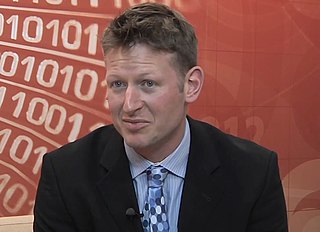A Quote by James Lovelock
By the end of this century, climate change will reduce the human population to a few breeding pairs surviving near the Arctic.
Related Quotes
It's possible that we'll screw up the climate so badly that most of us will die and a few breeding pairs will remain somewhere in the arctic. What's more likely is that we'll continue remaking the planet, driving many species to extinction, killing millions of people through the indirect effects of climate change, making life even harder for the poor and powerless than it is now, and making it a little more difficult for the global middle class to live the lives to which they have become accustomed - in other words, business as usual, only worse.
City farming is not only possible, it is the very definition of the kind of meaningful, sustainable innovation we will need to meet the grand challenges of the 21st century: climate change; population growth; ageing population; urbanization; rising demand for energy, food and water; poverty; and access to healthcare.
We will pay for this [climate change] one way or another. We will pay to reduce greenhouse-gas emissions today and we'll have to take an enormous hit of some kind. Or we will pay the price later in military terms. And that will involve human lives. There will be a human toll. There is no way out of this that does not have real costs attached to it.
Although population and consumption are societal issues, technology is the business of business. If economic activity must increase tenfold over what it is today to support a population nearly double its current size, then technology will have to reduce its impact twenty-fold merely to keep the planet at its current levels of environmental impact. For example, to stabilize the climate we may have to reduce real carbon emissions by as much as 80 percent, while simultaneously growing the world economy by an order of magnitude.
There is a single theme behind all our work-we must reduce population levels. Either governments do it our way, through nice clean methods, or they will get the kinds of mess that we have in El Salvador, or in Iran or in Beirut. Population is a political problem. Once population is out of control, it requires authoritarian government, even fascism, to reduce it.
Some global hazards are insidious. They stem from pressure on energy supplies, food, water and other natural resources. And they will be aggravated as the population rises to a projected nine billion by mid-century, and by the effects of climate change. An 'ecological shock' could irreversibly degrade our environment.


































